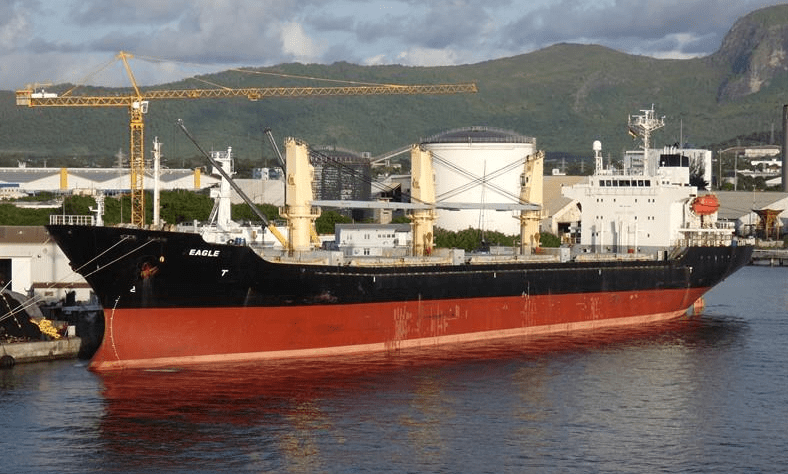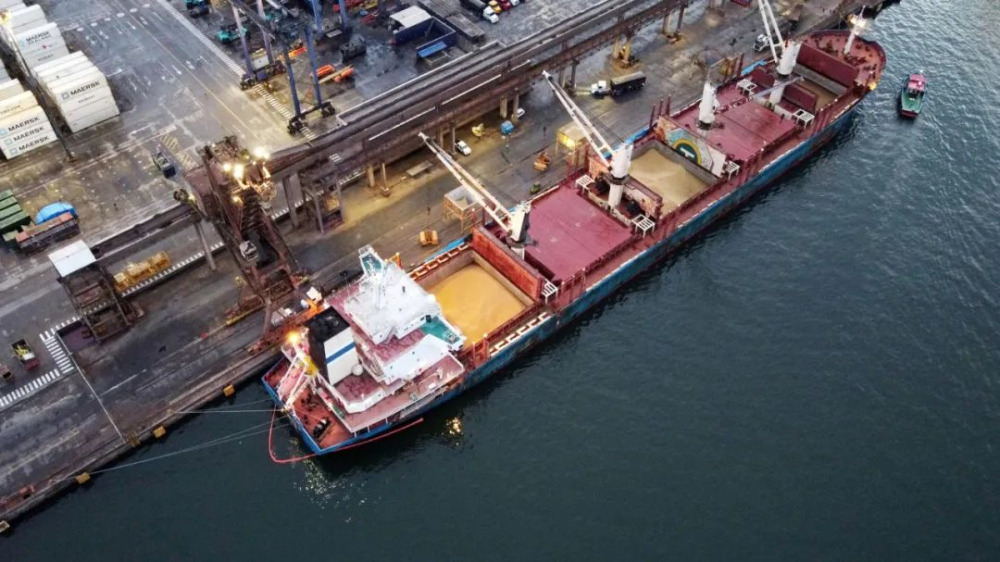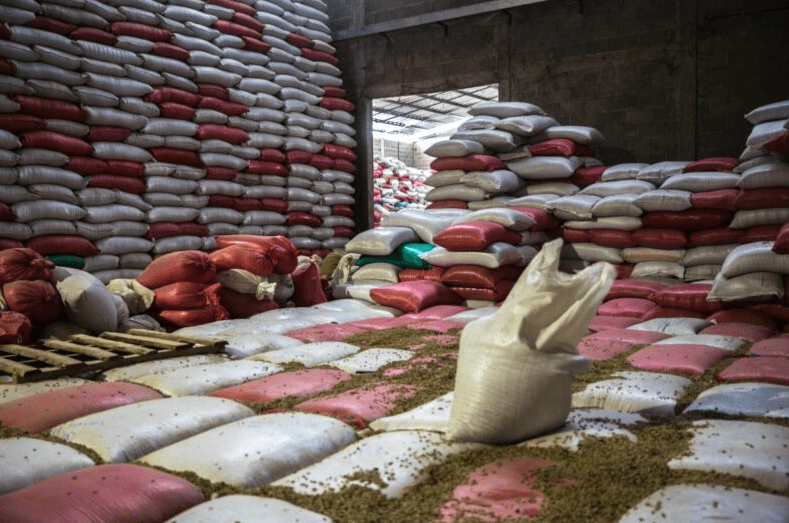Brazil began to use bulk carriers to export coffee and raw beans! Will the quality of coffee beans be guaranteed after that?
Recently, a transatlantic bulk carrier attracted the attention of coffee traders. The reason is that the Singapore trading company Olam Internationa chartered a bulk carrier called Eagle to transport coffee beans.
Due to the influence of the epidemic, there is a serious shortage of containers in the whole shipping industry. the coffee industry, which is trapped by the bottleneck of the supply chain in the collection and transportation market, is facing an unprecedented supply chain crisis. Many raw coffee beans are overstocked in port warehouses and coffee prices are rising in many countries due to export delays. In order to alleviate the serious backlog and delay of goods, people have to return to the way coffee beans were transported more than 20 or 30 years ago-- coffee beans were exported by bulk carriers.

In fact, the risk of using bulk carriers to transport coffee beans is very high! In addition to being susceptible to damp and moldy, the sea breeze can also change the flavor of coffee beans. So since the late 1980s and early 1990s, coffee traders no longer use bulk carriers to transport coffee beans, and gradually switch to containers that protect themselves from wind and rain and drier space. This time the bulk carriers are carrying robusta coffee beans from Indonesia. From Lampung, Sumatra, across the Atlantic through the Mediterranean Sea, to the United States, which is seriously short of coffee supply. This is also more than 20 years later, the industry once again uses bulk carriers to carry coffee beans for export.

Looking at this, you may think, if it is to transport Robbosa beans, that is OK, after all, there is not much flavor to speak of. But in addition to the bulk carrier carrying Luodou, there is also a bulk carrier carrying Arabica coffee beans that has left Brazil and is on its way to Europe. Cooxupe, Brazil's largest coffee cooperative, also chartered a grocery ship in early December to export 108000 bags (60kg/ bags) of Arabica coffee beans to Europe. The company also plans to continue to export two batches of Arabica coffee beans through bulk carriers in January 2022. The head of the Cooxupe co-op said: loading and unloading coffee beans is a challenge. Without the container state, the bags of coffee beans are put in bags and picked up one by one. But only some ports have enough equipment to lift bagged coffee beans from the cabin. Since the ship can only stop at sea, the loading process is easily affected by the weather, and operations will be stopped whenever it rains or the air humidity is too high, so Cooxupe originally expected to take two days to load the bagged coffee beans onto a grocery ship, but it took five days to complete the loading. In the end, the actual cost was also higher than the initial estimate, causing the company to re-coordinate with customers to raise freight rates.

Although the risk is high and the cost is unstable, many traders have decided to try this way to solve the logistics bottleneck. This kind of high-risk transportation is always better than the long-term backlog of brown beans in the warehouse. after all, there are not many warehouses in the port, and if it is not exported, it may even be a problem for storage.
Photo Source: Internet
Professional coffee knowledge exchange more coffee bean information please follow the coffee workshop (Wechat official account cafe_style)
For more boutique coffee beans, please add private Qianjie coffee on Wechat. WeChat account: kaixinguoguo0925
Important Notice :
前街咖啡 FrontStreet Coffee has moved to new addredd:
FrontStreet Coffee Address: 315,Donghua East Road,GuangZhou
Tel:020 38364473
- Prev

The use of coffee grounds black coffee grounds can be used in refrigerators to remove flavor and make furniture speakers!
Recently, a batch of furniture made from coffee grounds is on display in the Mao hemp warehouse in Yangpu District, Shanghai. The "coffee grounds recycling board" used in these environmentally friendly furniture is a cooperation between Tongji University and Starbucks. The recycled coffee grounds are mixed with other environmentally friendly materials to make low-carbon and environmentally friendly panels, which can be used in a variety of furniture designs.
- Next

After the post office and police station opened cafes, the fire brigade also opened the first "Blue friend Coffee".
Some time ago, a number of police stations in Hangzhou also opened cafes. In mid-June last year, Hangzhou Public Security official account po article: immediately attracted heated discussion among netizens ~ many netizens mocked: "A sir invites you to drink coffee."No one dares to comment on these cafes." these police station cafes are called Gongfu Public Security.
Related
- Can lightly roasted coffee beans be used to extract espresso? How finely should you grind high-quality coffee beans to make Italian latte?
- What is the difference between the world's top rose summer coffee and Yejia Shefi? What are the flavor characteristics of Yega Shefi coffee and Panama rose summer?
- The ceremony is full! Starbucks starts to cut the ribbon at a complimentary coffee station?!
- A whole Michelin meal?! Lucky launches the new "Small Butter Apple Crispy Latte"
- Three tips for adjusting espresso on rainy days! Quickly find the right water temperature, powder, and grinding ratio for espresso!
- How much hot water does it take to brew hanging ear coffee? How does it taste best? Can hot water from the water dispenser be used to make ear drip coffee?
- What grade does Jamaica Blue Mountain No. 1 coffee belong to and how to drink it better? What is the highest grade of Blue Mountain coffee for coffee aristocrats?
- What are the flavor characteristics of the world-famous coffee Blue Mountain No. 1 Golden Mantelin? What are the characteristics of deep-roasted bitter coffee?
- Can I make coffee a second time in an Italian hand-brewed mocha pot? Why can't coffee be brewed several times like tea leaves?
- Hand-brewed coffee flows with a knife and a tornado. How to brew it? What is the proportion of grinding water and water temperature divided into?

